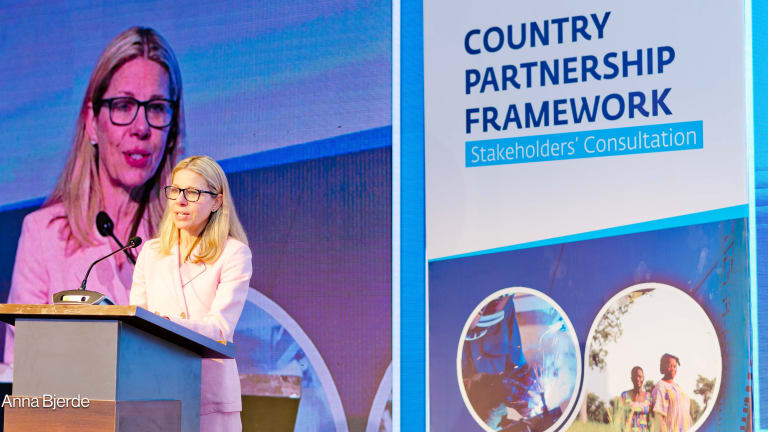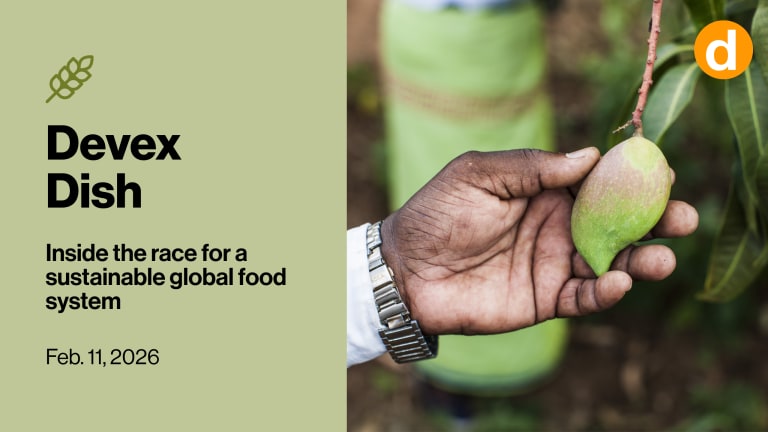
The issue of inequality has the taken the development world by storm in recent months, reaching an apex in May when the United Nations High-Level Panel on the post-2015 development agenda called for a data revolution to curb inequality in opportunity and income mostly thriving in developing countries.
Global Development Network president Pierre Jacquet believes that building the capacity of developing country researchers is vital in carrying out this data revolution.
“Talking about inequality is one thing, but if we see accurate information on inequality, it also creates a pressure to act and creates solutions,” Jacquet told Devex on the eve of the 14th Annual Global Development Conference in Manila.
GDN — along with its partners, the Asian Development Bank, the East Asian Development Network and the Philippine Institute for Development Studies — are gathering about 400 participants from across the globe on June 19-21 to discuss inequality, social protection and inclusive growth, and how building the capacity of developing country researchers fits into the global development agenda.
We asked Jacquet, former chief economist at the French Development Agency, about addressing inequality from its roots and how local-based research can help stem the widespread problem.
The U.N. High-Level Panel on the post-2015 development agenda called for a data revolution to curb inequality in its May 30 report. How important is this new development?
There has been a need for better empirical studies. While we know how to provide aggregate indicators like the gross domestic product, there are limitations in terms of the coverage of these indicators. A big challenge on data collection and using data is how one can have a global policy that takes into account the individual much more than the aggregate.
Inequality is really a question that deals with individual units and not the whole economy. We may know that the GDP grows but that doesn’t necessarily mean it will benefit everyone, so how do we measure inequality so that we have a constant assessment of the situation that will create debate to inspire policies? I support very much the drive towards what they called a data revolution — certainly, a progress in the generalization of measurement and so on.
Do you see the need for global or regional targets?
Wanting to meet targets is an incentive to act. I tend to prefer objectives defined at the national level rather than a global level because each country is in a different position, and their trajectory will be different, and I’m not sure that a global target for everyone can accomplish that. But we could have a mix of a global target and a country-based target for a number of indicators. I think it’s useful to create the incentives to help monitor progress and to discuss why progress is achieved or not. The question is not as much about whether any target has been met as whether policies have been put in place and whether progress is visible.
How do you see developing country researchers fitting into the success of the post-2015 agenda?
It has a lot to do with ownership. Part of capacity-building of local researchers is to include them in the debate and develop their own work in the issues [of inequality and inclusive growth] and formulate their own challenges to help develop their own priorities, and that’s something that local research can be instrumental in doing. Part of the inequality discussion is very local, so the best placed to analyze these issues and the challenges linked with them are developing country researchers themselves. The idea is to equip them with tools, methods and the facilities to conduct research on these subjects.
Do you see a role for aid implementers and donors here?
Increasingly, you see donor agencies working with communities trying to improve livelihood and measuring the impact on livelihood, and that’s a very useful way to measure aid effectiveness. One doesn’t measure, and shouldn’t measure aid effectiveness by correlating the volume of aid resources with the rate of growth — what matters is how some aid programs are successful in improving the livelihood of people. I think the research-based management program that has been introduced in development aid agencies has helped a lot to focus policies toward communities and measuring individual livelihoods.
There are reasons to be optimistic. Even though I enjoy reading in the papers everywhere that we should eradicate poverty and inequality, I don’t believe that is very likely to happen. Still, we’ll always need to care about these issues. For me, it’s not a result to achieve but a profound governance issue to tackle: what kind of policies can we put in place to reduce the incidence of inequality?
What more can be done to exploit the strengths of research for development?
There are gaps when it comes to knowledge on inequality. Inequality means looking individually to the household, and a lot of effort is still needed to understand how individual households live not only in developing countries, but across the board as well. I think exposing that information is a very important element of policy because you don’t create policies on things that you do not observe.
Read more development aid news online, and subscribe to The Development Newswire to receive top international development headlines from the world’s leading donors, news sources and opinion leaders — emailed to you FREE every business day.
Search for articles
Most Read
- 1
- 2
- 3
- 4
- 5








